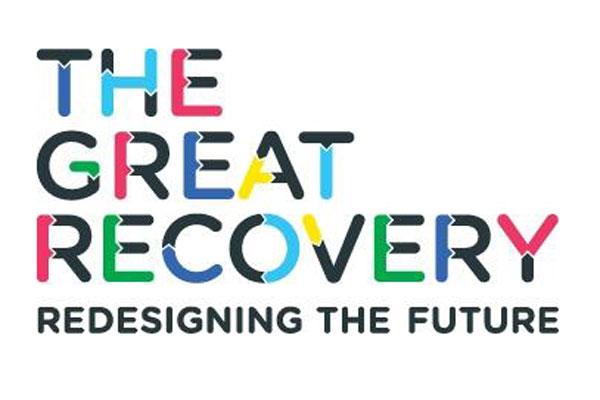Lucy Chamberlin reflects on the European Commission's long awaited new circular economy package.
Coinciding with the COP negotiations in Paris, the beginning of December saw the release of the EU’s long-awaited policy plan for the circular economy. This follows the Commission’s dismissal of the previous package last Christmas, with the explanation that it was too waste-focused and not ambitious enough.
Initial reactions to the new plan have varied from the openly enthusiastic (‘a constructive set of proposals which should be welcomed’, says Dow Chemical) to the scathing (‘disproportionate focus on waste’ from techUK), the frustrated (‘will make it very difficult for those in the reuse sector’, says the Furniture Reuse Network) and the downright dismissive (a ‘watering down’ and ‘free pass to shy away from tackling our over-consumption crisis’, says Friends of the Earth). The European Academies Science Advisory Council caution that such policies cannot be developed without international cooperation beyond the EU, whilst also drawing attention to the lack of focus on social and environmental externalities: considering current economic conditions, it is difficult to disagree with the statement that ‘accurate pricing is the key to the most efficient and long-term transition from linear to circular economy’.
Whilst the action plan itself makes all the right noises about maintaining value, transforming our economy and generating competitive advantages for Europe (though we might question that last one if we were taking a more generous, COP-inspired global approach), as Craig from FRN puts it, the devil is in the detail.
The coverage of design, for one thing, is limited and pretty disappointing. The main focus here is on updating the EcoDesign Directive – something that most designers never read, and which only covers energy-related (ie electrical or electronic) products. No mention of all those other categories of product – clothing, furniture, construction etc –that do not consume energy in the use phase and yet through their manufacturing and disposal are still responsible for eye-watering carbon emissions and waste piles.
In a somewhat obtuse piece of jargon, the Commission promises to ‘examine options and actions for a more coherent policy framework of the different strands of work of its product policy in their contribution to the circular economy’. Footnotes explain this to be about Ecodesign, Energy Labelling, Ecolabel and Green Public Procurement – most of which are outdated or inadequate or should certainly be rendered so if this new policy document had lived up to its hype.
Differentiated Extended Producer Responsibility costs that link in with end of life costs are a step in the right direction, the idea being to incentivise more easily reused or recycled products. But the absence of proper differentiation here and throughout the document between reuse and recycling indicates a failure to communicate and act on the basic priorities of the waste hierarchy. Moreover there is a startling lack of emphasis on the need for research into the new business and economic models (tackling regressive marketing or routine overproduction for instance) that will have to underpin any changes in design behaviour.
Contrary to expectation, this new action plan is still largely focused on waste, for which it provides targets (reduced since the last iteration), legislation and €5.5billion in funding (where is the equivalent finance package for design?) Other measures are either stuck at the R&D phase or to be ‘encouraged’ through best practice examples or the issuing of guidance – soft-power steps that are all very well in context but not particularly impressive coming from a governing authority attempting to transform the economic future of a continent.
There are some positive indications around developing EU-wide data and quality standards on secondary raw materials and food waste. And if action is taken in all the areas it is promised then it could provide some useful behavioural shifts. But there are some glaring omissions: jobs and skills, for instance, receive very little attention even though some of the biggest changes will need to happen in the way we train and employ our workforces.
On the whole this is a document that is too comfortable with the old ways of doing things: too concerned with incremental advances in energy, waste and water efficiency and not yet brave enough to address the underlying issues of economics, exponential consumption and human welfare. The Commission would do well to learn from the Manufacturing Commission’s recent report on Industrial Evolution, which urges policymakers to be active players in the innovation process rather than passive correctors of market failures, and to provide a clear social purpose in addressing society’s most pressing challenges. The need for clear leadership is now.
Related articles
-
Blog: Maker Walk Bristol - Mapping Urban Manufacturing
Jude Sherry
Jude Sherry FRSA is looking into what capacity does Bristol have to produce the products the city needs?
-
Blog: Recycling - the USB plug for a circular economy
Sandy Roger
The standardised USB plug removes confusion, waste and inefficiency in our IT systems; Sandy Rodger argues that standardising our recycling processes would do the same for end of life material recovery.
-
Blog: Why is the circular economy transformational (and not just a smaller elephant?)
Sandy Rodger
Sandy Rodger FRSA explains why Circular Economy is a force for creating a new, transformational, conversation about resources - and not just a smaller elephant.



Be the first to write a comment
Comments
Please login to post a comment or reply
Don't have an account? Click here to register.